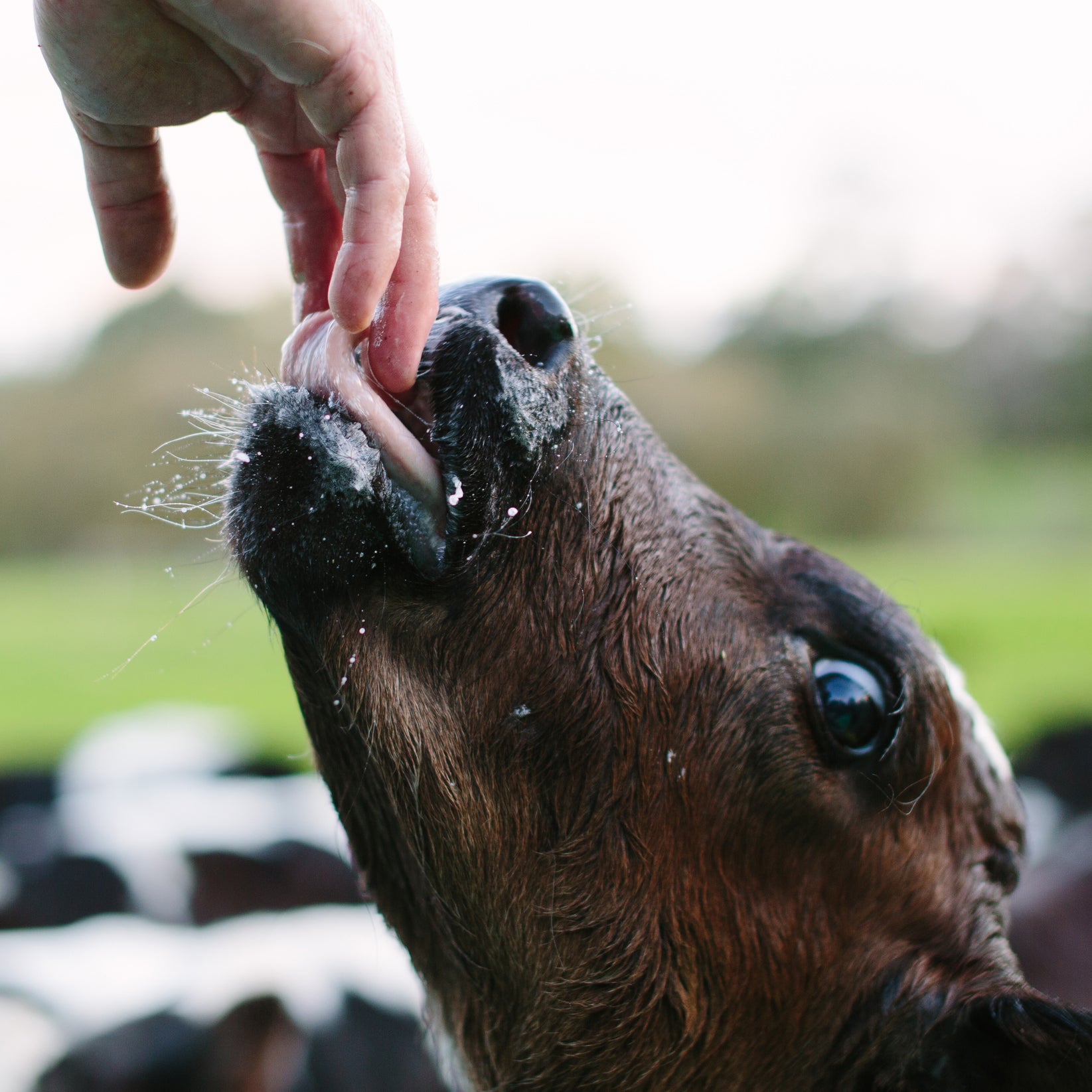, an animal sciences professor at Arkansas State University, upholds the scientific method. When he wants to test a hypothesis, he organizes a double-blind trial. At home on his hog farm in Missouri, though, Newman’s willing to make an anecdotal observation: His 200 Berkshire sows are doing better than ever. “They’re really healthy. And if they’re healthy, they’re growing,” he says.
The secret to this year’s bumper crop of bacony goodness? Seaweed. More and more cattle and pig producers think seaweed may help us reduce antibiotic use on farms while producing more sustainable and nutritious meat. Even better, there’s compelling evidence that feeding certain types of seaweed could help reduce the greenhouse gas emissions of cattle, which, with their methane burps and farts, are an environmental catastrophe. Currently, you can find seaweed-fed meat in more than 150 restaurants across the country and in high-end grocery stores under the brand .
Feeling weird about this surf-and-turf special? No need. Here’s what else you need to know.
Is It Good for the Environment?
A done at James Cook University in Australia found that adding a seaweed called Asparagopsis taxiformis into a “simulated cow stomach” reduced production of methane by 99 percent. This is a big deal because, (FAO), cows around the world emit 7.1 gigitons of CO2 in the form of methane each year. A whopping 14.5 percent of all human-related greenhouse gas emissions come from livestock flatulence. (which lumps livestock in with other agricultural activities, like land clearing) rates livestock as the second-largest greenhouse gas emitter, after electricity and power production and before industry activities. (Alas, this seaweed effect only works for cows. Chris Hostetler, the director of animal science for the National Pork Board, says that because pigs aren’t ruminants and don’t digest forage in a hind gut, they don’t burp and fart out nearly as much methane.)
Furthermore, seaweed plays a starring role in capturing carbon dioxide from the atmosphere. One climate scientist thinks giant seaweed farms may be our . And when farmed in existing waterways, seaweed requires zero inputs—no fertilizer, feed, or pesticides.
Is It Good for the Animals?
Seaweed is considered a superfood because of its high levels of vitamins, minerals, and Omega-3 fatty acids. It also contains fucoidans and laminarins, two bioactive compounds believed to have positive health benefits. Research has found that these compounds and reduce the number of nasty bugs found in a pig’s digestive tract. Like in humans, good gut health in pigs translates to better overall health and stronger immune systems.
A healthy herd is a lucrative herd—especially for a farmer who markets his hogs as antiobiotic-free, as Newman does. He’s noticed a significant downtick in colds and flu since introducing seaweed to his herd’s daily rations.
Plus, Martin says that coastal cultures have fed seaweed to livestock for centuries, maybe longer. For farmers who are newer to the practice, there’s been a decade-long research process to figure out exactly which varieties are best for different animal species and how to grow and produce those types in a sustainable way. Do the animals like eating the seaweed? “While we haven’t gotten a verbal confirmation, the pigs seem to enjoy it just fine,” says Martin.
Is It Good for Me?
There’s good that feeding livestock diets rich in Omega-3s results in meat and milk that’s also higher in Omega-3s. Seaweed seems to be a particularly good source of Omega-3s for animals, and Patrick Martin, CEO of , says that in the company’s lab tests, animals fed seaweed contained larger amounts of total Omega-3s and possibly less LDL cholesterol than conventionally raised meat.
What do independent experts say? Hostetler isn’t convinced about some of the other purported benefits of seaweed-fed pork, like an enhanced immune system. However, “pigs are what they eat, so what a pig eats can end up depositing in its fat.” Make no mistake, though: You will not see a cardiologist-approved bacon anytime soon. “You’d have to eat so much pork to really get a benefit. You’re probably better off just taking your fish oil pill,” Hostetler says.
Does It Taste Weird?
Feeding a diet rich in healthy fats can result in healthier meat, and Martin claims that feeding livestock seaweed could result in better, more-even marbling within the chops and brisket. “Our products carry very large amounts of nutrients, such as retinol and vitamin A, which are essential for fat metabolism,” he says. When fat is more efficiently metabolized, it results in “less fat deposition in subdermal areas and more intrinsic fat in muscles,” he says—that is, juicier, more-luscious barbecue sandwiches. Again, Hostetler is a touch skeptical, saying that he hasn’t seen any science connecting retinol or vitamin A to fat metabolism in swine, and if you personally want to get more vitamin A in your diet, he says, “eat a carrot.”
The more important question: Does it at least taste normal? There’s always the concern of ending up with a final product that, while healthy, tastes a little fishy. Pigs, like many other creatures, take on the flavor of whatever they’re fed. That’s why acorn-fed pork is such a delicacy. “It ends up tasting almost nutty,” explains Newman. When he was testing seaweed as a potential feed ingredient in his lab, Newman worried that the pork chops he produced might taste a bit like licking a tuna. But he says the briny notes don’t transfer. “It doesn’t taste like seaweed at all,” Newman swears, and chefs seem to be in agreement. James Beard Award–winning chef Marc Ladner described the pork at a tasting event: “More moist, more tender. If you’re going for no negative effects on flavor from the seaweed, I think you have it.” And Paul Wetzel, a sous chef at Gramercy Tavern, describes Heritage Pork, a brand that uses a seaweed-inclusive feed, as “some of the most flavorful pork we get a chance to use.”


